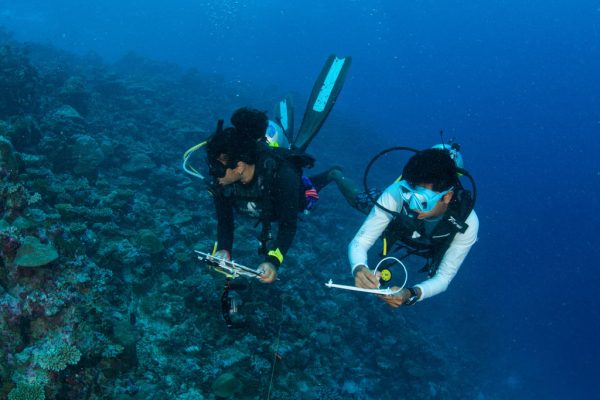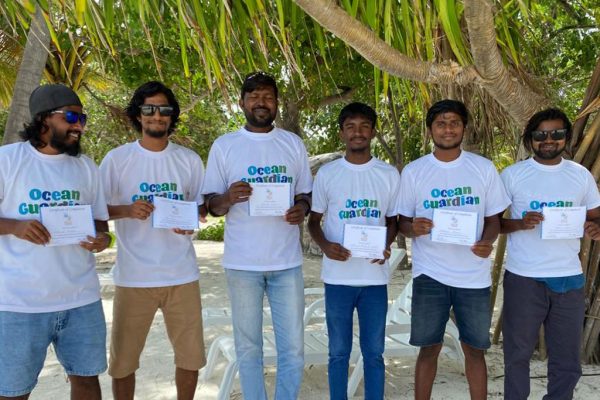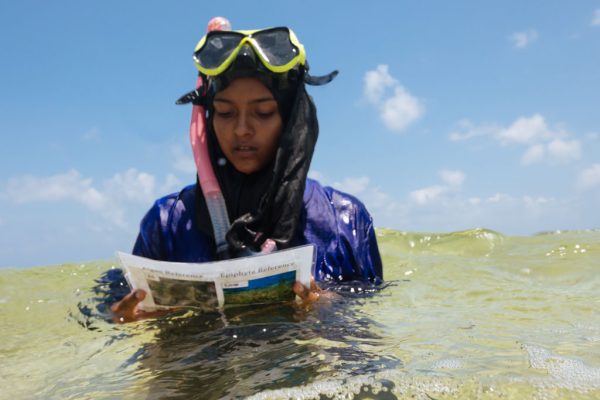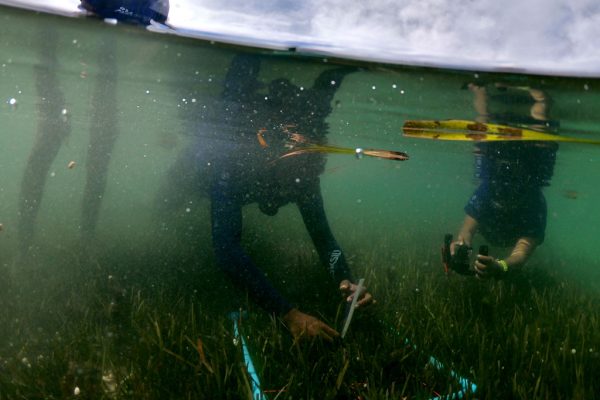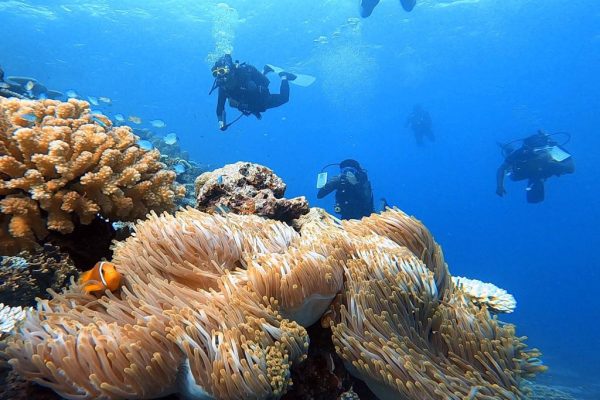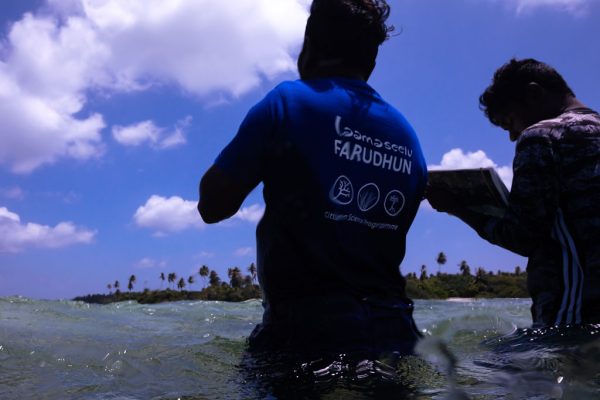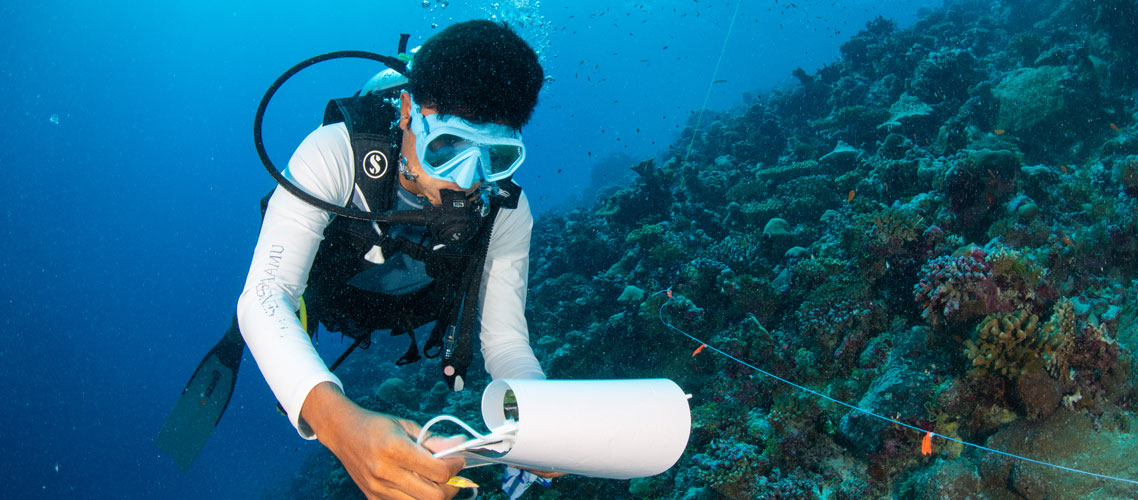“In the end we will conserve only what we love; we will love only what we understand; and we will understand only what we are taught.”
Baba Dioum, 1968.
Maldivians are intricately connected to the natural habitats around our islands. We depend on these habitats for our very existence and benefit from them in numerous ways every day. As the custodians of these great habitats, we have a responsibility to understand and safeguard them for the future.
Here at Maldives Resilient Reefs, we want to help more people learn how to do this and support them as they take their first steps towards conservation.
Seagrass – Our seagrass Farudhun learn how to monitor seagrass meadows following a one-day workshop that covers seagrass species identification, measuring and recording methods. After the training, these Farudhun have the necessary knowledge to monitor seagrass meadows near their islands and contribute data to the national seagrass monitoring network.
Coral Reefs – Our coral reef Farudhun learn how to monitor coral reefs following the completion of open water dive training and Reef-Check Eco Diver trainings respectively. With the reef check training, divers learn how to identify key indicator species, substrates, invertebrates and impacts to the reef from natural and artificial causes. After these trainings, they can work with us to monitor certain reefs in the atoll.
We recognize that the field of marine conservation has been very removed from the experiences of rural Maldivians for too long. One of the hallmarks of our programme is that our ‘Farudhun’ are normal (but exemplary!) people from all walks of life who want to understand and get involved in conservation. So far, young fishers and farmers from Laamu Atoll have taken part in our seagrass and coral reef workshops. Through this program, we hope to create a community of people who understand and value the ocean and will actively work to conserve it.
All our Farudhun help us collect important data from these habitats. But it is also a chance for those involved to enjoy nature and have a good time doing “science”.
Want to be an exemplary citizen?
We hold workshops to train new citizen scientists periodically, but we’re always looking for enthusiastic young people interested in marine conservation. Reach out to let us know if and why you want to be involved.
SUPPORTING ORGANISATIONS


